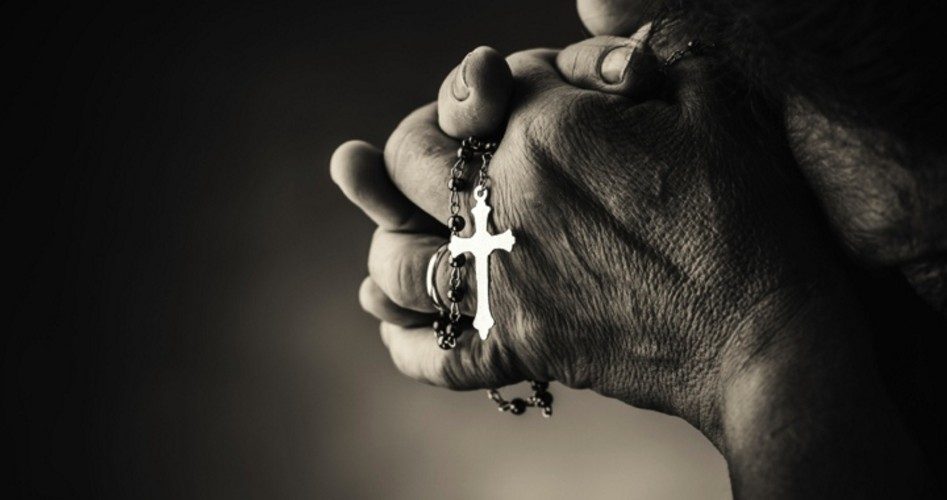
The European Court of Human Rights (ECHR) offered a mixed bag of decisions January 15 concerning the rights of British Christians in the workplace, ruling in favor of a woman who was disciplined by British Airways for refusing to cover up a cross necklace she wore as part of her faith, while dismissing three other cases of religious discrimination appeals brought by U.K. Christians.
The only victorious claimant was Nadia Eweida, an employee of British Airways who was sent home in 2006 because she refused to remove a necklace with a cross that the airline said violated its dress policy, even though other employees were allowed to wear religious attire that was much more obtrusive, such as hijabs, turbans, and skull caps. While a British court had ruled against Eweida’s claim of religious discrimination, the ECHR reversed the decision, ruling that Eweida’s cross “was discreet and cannot have detracted from her professional appearance.” The court added that there was also “no evidence that the wearing of other, previously authorized, items of religious clothing, such as turbans and hijabs, by other employees, had any negative impact on British Airways’ brand or image.”
Eweida said that the verdict prompted her to jump for joy and thank Jesus. “It’s a vindication that Christians have a right to express their faith on par with other colleagues at work visibly and not be ashamed of their faith,” she said.
British Prime Minister David Cameron also appeared to appreciate the ruling, tweeting he was “delighted that the principle of wearing religious symbols at work has been upheld.” In response to Eweida’s case Cameron had indicated a willingness to introduce legislation allowing individuals to wear religious symbols at work.
The Church of England’s Archbishop of York, John Sentamu, also applauded the ECHR’s ruling. “Christians and those of other faiths should be free to wear the symbols of their own religion without discrimination,” he said in a statement after the ruling. He added that Britain’s Equality Act 2010 “encourages employers to embrace diversity — including people of faith. Whether people can wear a cross or pray with someone should not be something about which courts and tribunals have to rule.”
While the European court looked favorably on Eweida’s complaint of discrimination, three other Christian individuals — Shirley Chaplin, Lillian Ladele, and Gary McFarlane — all lost appeals in which they argued that British courts had disregarded their rights to religious expression.
Chaplin, a nurse, had worn her confirmation cross necklace at work for more than 30 years without complaint or incident, before the hospital where she was employed decided that such items posed a potential “health and safety” danger and must be removed. Chaplin filed a discrimination complaint, pointing out that accommodation had been made for employees of other faiths, such as Hindus and Muslims. Unlike Eweida’s very similar case, however, the ECHR dismissed Chaplin’s appeal, ruling that the hospital’s reason for the prohibition of the cross — the protection of health and safety on the hospital ward — was “of a greater magnitude than that which applied in respect of Ms Eweida.”
Chaplin said that while she was “very disappointed” by the ruling, “I am gratified that the cross has been recognized as a Christian symbol. I think that will give a lot of Christian workers good heart that they can show their faith in the workplace.”
The two other cases dealt with the the rights of individuals to forgo job functions that violate their moral and faith convictions. Lillian Ladele, a British marriage registrar and a Christian, was disciplined after she asked to be exempt from registering same-sex civil partnerships, citing that as a Christian she could not condone homosexual relationships. And Gary McFarlane, a church elder and successful relationship counselor, was fired from his job after explaining during a training course that offering psychosexual therapy to homosexual couples would violate his Christian convictions. Both cases, which charged religious discrimination, were dismissed by the ECHR.
John O’Doherty of the Ireland-based Rainbow Project, a homosexual activist group, applauded the dismissal of Ladele’s and McFarlane’s cases, insisting that “religious belief cannot be used as a smokescreen for discrimination, and all service providers must recognize that they may not pick and choose which members of the public are worthy of accessing services.”
But Mike Judge of the Christian Institute, which had helped to represent Ladele in the case, warned that the ruling may have serious implications as the U.K. moves toward legalizing homosexual marriage later in 2013. “If the government steamrollers ahead with its plans to redefine marriage,” he said, “then hundreds of thousands of people could be thrown out of their jobs unless they agree to endorse gay marriage.”
Roger Kiska, senior legal counsel for Alliance Defending Freedom, which assisted in the cases of all four of the individuals, reacted to the rulings, pointing out that “Christian employees should not be singled out for discrimination. No one should have to hide their faith or act contrary to it. That type of intolerance is inconsistent with the values of civilized communities.”
Kiska called the victory for Eweida “a significant step forward for religious freedom in Europe. However, it is extremely disappointing that the court ruled against the three other applicants. We hope they will appeal that decision to the Grand Chamber of the court.”
The U.K.’s Catholic Herald reported that all four of the Christian complainants had appealed to the ECHR on the grounds that their rights to religious expression were protected under Article 9 of the European Convention on Human Rights, which supposedly guarantees the rights of individuals to (in the words of the statute) “manifest religion or belief, in worship, teaching, practice and observance” subject to those limitations “prescribed by law and necessary in a democratic society for the protection of the rights and freedoms of others.”
John Duddington, editor of the U.K.’s Christian Law Review, told the Herald that he had anticipated the decisions of the European court. In the case of Eweida, said Duddington, “the decision of the UK courts that a Christian could be prevented from wearing a cross at work was plainly wrong and thank goodness that the European Court of Human Rights has seen sense here.” However, he added, “the courts have a very poor record of upholding the rights of Christians when other rights are involved, such as those of homosexuals, and so the other decisions, although very disappointing, come as no surprise.”
Related article:



